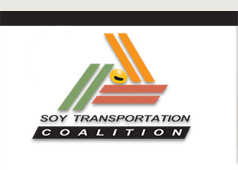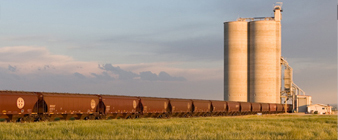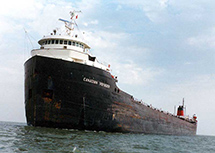 |
 |
|
| eNews • July 2013 | ||
| Promoting a Cost-Effective, Reliable and Competitive Transportation System |
||
 ILWU Slams Proposed Safety Zones for Grain Ships
ILWU Slams Proposed Safety Zones for Grain Ships
The U.S. Coast Guard has proposed establishment of temporary safety zones around all inbound and outbound grain shipment and grain shipment assist vessels involved in commerce with Mitsui, Marubeni and Louis Dreyfus facilities on the Columbia River in the Pacific Northwest.
The proposed rule follows an ongoing worker lockout by Mitsui-owned United Grain in Vancouver, Wash., and Marubeni-owned Columbia Grain in Portland, Ore.
For grain shipment vessels, the safety zone extends to waters 500 yards ahead of the vessel and 200 yards abeam and astern of the vessel. For grain shipment assist vessels, the safety zone extends to waters 100 yards ahead of the vessel and 50 yards abeam and astern of the vessel.
These safety zones aim to ensure that protest activities related to labor disputes do not create “hazardous navigation conditions” for any vessel or other river user in the vicinity of these safety zones, the Coast Guard said in the proposal, which can be viewed on Regulations.gov under docket number 2013-13137.
The International Longshore and Warehouse Union, which represents the locked-out workers at the ports of Vancouver and Portland, has condemned the proposed new rule:
“The Coast Guard has not offered any justification as to why new zones of these sizes were chosen rather than more narrowly tailored, current zones that tread less upon free speech rights,” said Jeff Smith, president of ILWU Local 8, in a written statement. “The proposed zones prevent workers from engaging in meaningful, lawful protest activities by impeding our ability to form effective water pickets and informing crewmembers aboard vessels that they are about to cross fellow workers’ picket lines.”
The on-water picketing activities are aimed at announcing the existence of a picket line to incoming vessels and grain shipment assist vessels that may choose to honor the picket line. By prohibiting demonstrators from coming near incoming vessels, the safety zones prevent workers from conveying their message to their intended audience, the ILWU explained.
“With this rule, the Coast Guard is basically serving as the private security force for profitable foreign corporations Mitsui and Marubeni,” added Rich Austin Jr., ILWU grain negotiating co-chairman. “Now workers carrying labor picket signs cannot get within several football fields of a vessel without risking arrest, but everyone else can come and go as they please.”
Each year, approximately 22 percent of U.S. soybeans are exported from Pacific northwest ports.
Source: Journal of Commerce
Soy Transportation Coalition |
|
